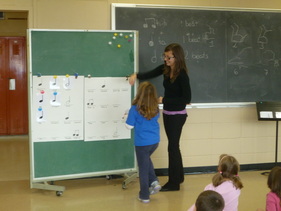In this section, you will see how I evaluate myself in terms of the 12 professional competencies that have to be demonstrated by students in their different field experiences.
Competency 1: To act as a professional heritor, critic and interpreter of knowledge or culture when teaching students
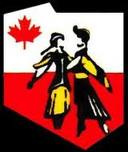
When I teach music in a French environment, it is very easy for me to fulfil the requirements of this competency as I grew up with parents that spoke French as a first language. However, it is a bit harder for me to discuss English culture with students as this is not where I have been raised. However, while on Field Experience III, I always took care of researching the different songs so I could explain to the students where they came from. If I was to work abroad, research would of course be at the heart of my practice as I would want my students to get more knowledgeable and understand where the music of their country came from.
Competency 2: To communicate clearly in the language of instruction, both orally and in writing, using correct grammar, in various contexts related to teaching.
When I decided to complete my Bachelor of Education at McGill University, I was ready to become fluent in my second language: English. Adapting to this new culture and language was not always easy. After spending a year in England and completing my third field experience in this language, I can now say I am comfortable teaching in both languages: English and French. I know my sentence structure is correct when I speak and I am rarely looking for words. In addition to all that, I make sure to have all documents I produce proof-read by a native speaker of English so that I verify that I did not translate directly from French.
Competency 3: To develop teaching/learning situations that are appropriate to the students concerned and a subject content with a view to develop the competencies targeted in the programs of study.
In my current job, I had to agree on a long-term plan with the other teachers so that all learners would get to the same point by the end of our contract: June 10th. Together, we breakdown the units in small chunks so that the lessons are relevant, simple and meaningful to the students. While on my last two field experiences, I learned a lot in terms of pedagogy: indeed, I had to come up with new ways to explain concepts so that students would understand and later put them into practice.
Competency 4: To pilot teaching/learning situations that are appropriate to the students concerned and to the subject content with a view to developing the competencies targeted in the programs of study.
A lot of the work I am doing right now at Heritage Regional High School involves the use of that competency. Indeed, I am often called on to come up with creative ways to make students want to work on the different projects they have to complete before the end of this year. Therefore, it is my responsibility to make them reflect on how this project can become more interesting and relevant to their life. While on my final field experience, I had the opportunity to witness how well Secondary III students could work together as a team. They worked on a project that they really took at heart: each team had to write a score reduction of a song they liked so that they could play it at the spaghetti dinner next year. Let me tell you the creations we had the chance to hear were full of creativity and the students were extremely excited about the project.
Competency 5: To evaluate student progress in learning the subject content and mastering the related competencies.
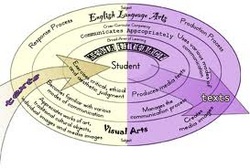
I got to develop that competency a lot in my two last field experiences. During those weeks spent in school, I had to evaluate students on all three competencies. For example, I evaluated Cycle 2 Year 2 students play recorder. Also, I read Secondary I-III-IV-V students' appreciation of a performance they did at a festival as well as I evaluated students' capacity to a few bars of music when I corrected the Secondary III projects in collaboration with my cooperating teacher.
Competency 6: To plan, organize and supervise a class in such a way as to promote students' learning and social development.
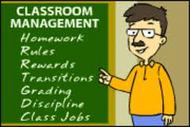
A music class has to be extremely structured. With all the instruments in the room and all the noise that can occur, students have to know the rule from the very start of the school year. This is definitely something I would implement while I am on my first contract as a music teacher. When it comes to classroom management, I believe I am able to deal well with disruptive students. I learned through my fourth field experience that I absolutely had to apply any consequence I thought I would give to a disruptive student. I am particularly happy about the progress I am making every day at developing a relationship with students so that they become less of a problem in the classroom.
Competency 7: To adapt his or her teaching to the needs and characteristics of students with learning disabilities, social maladjustments or handicaps.
During my second field experience, I got to work with two autistic students. Having brought a student to succeed in Physical Science and Mathematics when I was in Secondary V and he was completing Secondary IV, I felt very comfortable about supporting these two students with their musical competencies. I taught them both privately and proved successful in my teaching as they were able to follow the class when I was teaching. Establishing that bond between those students and I was not an easy task but both of them seemed to get to a point where they could respect me and feel comfortable talking to me outside the classroom.
While working at Heritage Regional High School, I had to handle students that were coded on a daily basis. Some of them had learning disabilities, dyslexia, attention deficits, hyperactivity, oppositional defiant disorder, etc. Adapting to their reality was a challenge which I learned to overcome everyday. I eventually was able to work with those children keeping in mind their functioning was different. Working with special needs students is definitely something I enjoy and I would for sure do it again if I was faced with the opportunity to do so.
While working at Heritage Regional High School, I had to handle students that were coded on a daily basis. Some of them had learning disabilities, dyslexia, attention deficits, hyperactivity, oppositional defiant disorder, etc. Adapting to their reality was a challenge which I learned to overcome everyday. I eventually was able to work with those children keeping in mind their functioning was different. Working with special needs students is definitely something I enjoy and I would for sure do it again if I was faced with the opportunity to do so.
Competency 8: To integrate information and communication technologies (ict) in the preparation of teaching/learning activities and for instructional management and professional development purposes.
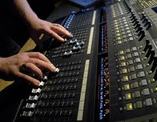
During my final field experience, I had the opportunity to work with a SmartBoard. I had been waiting for that for the whole duration of my training at McGill! Not only did this tool help me administer dictations to my students but I was also able to easily download videos and music to play it to my students on the spot. Another very useful tool has been GarageBand. Indeed, this program enabled me to record my students. We then integrated some appreciation of musical works to this class and the students were able to better identify what they needed to work on both as individuals as well as a class. Also, I have put together a list of websites and programs that can be used in a music classroom as part of my 4th Professional Seminar at McGill. I strongly believe technology should be a part of music education. So much of music now revolves around how technology can be used to compose, arrange or edit music and students should get comfortable with some of these skills while they are learning music.
Competency 9: To cooperate with school staff, parents, partners in the community and students in pursuing the educational objectives of the school.
I was very happy to take part in the school's assembly at my final stage school. I then witnessed how changes to the educational project happens. The school had decided to define the terms of the educational objective in a clearer manner so that both parents and students would know what to expect from the school. I did not participate in the changes but I truly appreciated seeing the process of the school's orientation being rewritten.
Music teachers are team players. To be able to be successful at teaching music, you have to be extremely nice to everyone. You are often part of a team of teachers and sometimes it can be hard to deal with as everyone has their own idea (and these can be hard to change when your colleagues have been teaching music for many years) of how music should be taught. The two field experiences I had in high school were very enriching in terms of team work. I have proven that I can work as part of team, make concessions and enrich the teams with my the contributions I brought to the table. I am an active team members who always takes care of establishing positive relationships with others – parents, students, staff members and administrators.
Competency 10: To cooperate with members of the teaching team in carrying out tasks involving the development and evaluation of the competencies targeted in the programs of study, taking into account the students concerned.

As mentioned under the 9th competency, I am a huge team player. I enjoy working with people on projects that can better students' education. I have proven this at during my final field experience in many opportunities. Indeed, I have worked at the JazzFest des jeunes du Québec and played a major role in my students' participation at the Festival des harmonies et orchestres symphoniques du Québec last May. Indeed, I was taking of the students' warmups while their teachers were taking pictures or performing with other groups. The school has a very big music program and some of the teachers had up to 6 performances during the day. Also, my cooperating teacher and I worked very hard for the students to miss as little instruction as possible while we had to evaluate them on all three competencies. We would sometimes separate the class and I would be evaluating and he would be teaching or vice-versa.
Competency 11: To engage in professional development individually and with others.
I have to admit I have not participated in many conferences outside of McGill so far. However, I strongly believe this will change once I enter the profession. There is still so much to learn!
Competency 12: To demonstrate ethical and professional behaviour in the performance of his or her duties.
I believe I am very professional individual when it comes to teaching. I take care of matters happening within the classroom using my judgement and I can always justify any decisions I have made to colleagues or to the administration. When some information should be kept confidential, I always take care of not disclaiming it to parties that do not need to know such things. Students are usually comfortable talking to me about their private life and I would never break their trust unless it was for safety reasons.
